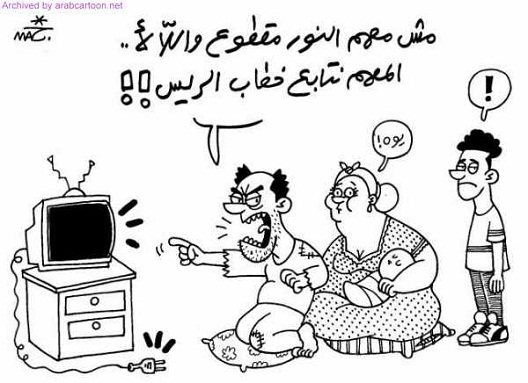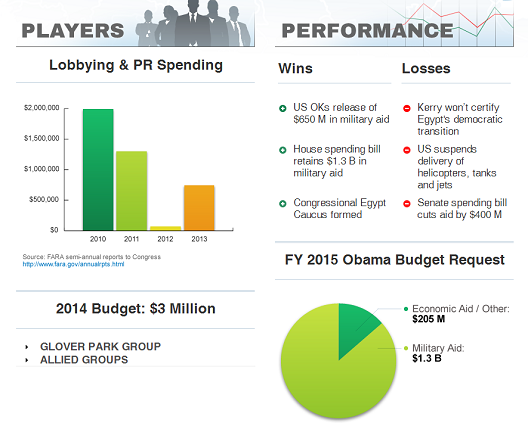 Catch up on the latest out of Egypt every week, with analysis, news updates, photos, videos, and more.
Catch up on the latest out of Egypt every week, with analysis, news updates, photos, videos, and more.
“These condemned remarks reflect complete ignorance and incompetence in understanding the reality of things in Egypt.”
–Egyptian foreign ministry spokesperson Badr Abdel Atty after a remark by State Department spokeswoman Marie Harf on the Egyptian government using US military aid “against their own people.”
- Child dies, four severely injured as mortar shell hits North Sinai home
- Around 2,500 Egyptians evacuated from Libya – minister
- Egypt rejects US military aid comments, Sisi to miss US-Africa Leaders Summit
- Amr Moussa’s Egypt electoral alliance collapses
- Egypt to build new Suez canal
- Egypt brokered ceasefire starts in Gaza, talks in Cairo
- Egypt court upholds death sentences for 12 Morsi supporters
- Steel tycoon Ahmed Ezz to be released on EGP 100 million bail
- Five police, four alleged militants killed in clashes on Matrouh road
- Kerry says Egypt’s economic reform plans ‘succeeding’
- Ministry of social solidarity says draft NGO law in line with new constitution
- Cairo Criminal Court sentences two men to life for Tahrir sexual assault
- Egypt says Mufti rejects Brotherhood leader death verdict, urges rethink
- Obama says Al Jazeera journalists should be released
- Sabbahi announces he ‘won’t run’ for parliament
- Brotherhood supporters plan “Retribution Revolution” on August 14
- Egypt rebukes Israel, Palestine for refusing ceasefire extension
Egypt keeps changing suits- but its mindset remains intact | Mohammed Nosseir, DNE
Egyptian rulers have a tendency to think big, but they fall short of delivering the fruits of their grandiose plans; in other words, they have a tendency to “overpromise” to their citizens. Each ruler raises citizens’ expectations in his own way, but eventually has to face them with the ugly reality of not being able to realize his promises. The relationship between the ruler and his followers is a trade-off between faith and hope; the ruler gives the people hope for the future and asks them to have faith in him. Rulers don’t realize how fragile the bond between them and their followers really is – not until they discover, in surprise, that that bond has been cracked.
Egyptian bureaucracy was not developed coincidently; it was designed with the specific purpose of creating huge entities to support the ruler, entities that can be used as a shield by the ruler should the need arise. Therefore, unless a proper democracy is in place in Egypt, modernizing and empowering the bureaucracy will not be in favor of the ruler. Consequently, no ruler has any serious intention of reforming the government.
…
We need to use innovative thinking and fresh views to tackle our problems. Being bolder – but keeping the same mentality – won’t help to develop Egypt.
Egypt squanders Gaza war opportunities | Mohannad Sabry, Al Monitor
On Aug. 1, Egypt decided to fully shut down the Rafah border crossing into the Gaza Strip as Israeli air force, navy and ground artillery pounded Rafah on the Palestinian side a few hundred yards away…On the same day but a few thousand miles to the west, the Tunisian authorities decided not only to shut down the Ras Ajdir border crossing in the face of thousands of Egyptians and other nationalities fleeing Libya’s deadly strife, but fended them off using tear gas and warning shots. Several Egyptians were killed amid the stampede and random Libyan fire at the border.
Egypt finally opened the Rafah terminal on Aug. 2 and allowed some of those stranded to cross, while Tunisia cooperated with Egyptian authorities to organize an evacuation fleet from Djerba-Zarzis International Airport for those stranded, but never actually allowed them into Tunisia.
The scenes were staggeringly similar. Regardless of names and coordinates, it was simply a crossing point with innocent victims stranded on the deadly side while a capable regime watches with a smirk and a deck of political cards from the relatively safe side. Well, what goes around comes around, almost instantly.
Both the Egyptian-Gazan and the Tunisian-Egyptian situations were interpreted as another phase of Egypt’s growing political isolation since the war kicked off in Gaza. But the overall losses of this war — taking place on Egypt’s eastern border and shattering the windows of residents in the Sinai Peninsula — will go way beyond politics.
The mind-boggling fact is that Egypt seems to be dealing with this mess as if it is unprecedented, as if it never walked through this Israeli-made crisis several times before. January 2008 was the unlearned lesson since Hamas’ takeover of the Gaza Strip over the bleeding bodies of the Palestinian Authority’s (PA) also not so popular men.
But the question remains: Will Egypt handle this war as intelligently as it did before 2013? Or will it squander the opportunities over its dispute with the already bunkering-underground Hamas?
On Twitter: Egypt’s New Suez Canal Project
Egypt announced plans this week to add an extra lane to the Suez Canal, one of the most important thoroughfares for world trade, in an attempt to increase the number of ships using the canal each day. A new 45-mile (72km) lane would allow ships to travel in both directions for just under half of the canal’s 101-mile length. Mohab Mamish, chairman of the Suez Canal Authority, said he hopes the new channel will be working within a year. Meanwhile, Sisi emphasized that the project will be financed by local banks and Egyptians rather than by foreign firms and investors due to Egyptians’ sensitivities surrounding the matter. Reactions on Twitter reflected skepticism to the announcement of the new development project.
Lots of military pomp for new Suez Canal project including ceremonial digging by children before bulldozers appear. pic.twitter.com/kMCIX6HLtR
— Kareem Fahim (@kfahim) August 5, 2014
Hello & welcome to the new Khedive Ismail–>Egypt to dig new canal alongside Suez Canal (under supervision of army) http://t.co/3Bso3GKJej
— Nervana Mahmoud (@Nervana_1) August 5, 2014
True to the form of all his predecessors (Toshka, Corridor of Development, etc) #Sisi trumpets the megaproject http://t.co/d7DPCW12rE#Egypt
— Jack Shenker (@hackneylad) August 5, 2014
My 5 cents on Suez Canal Project: army will take lion’s share, huge corruption, but it’ll be well done. Erdogan style; “nice” corruption.
— The Big Pharaoh (@TheBigPharaoh) August 5, 2014
A proposed intervention in Libya, a second Suez Canal… and here I thought #Egypt was broke!
— Paul Sedra (@sedgate) August 6, 2014
Is Egypt going to build the new Suez Canal before or after it builds the new capital city http://t.co/8cs8c6OKtv
— Evan Hill (@evanchill) August 5, 2014
Infographic: Suez canal expansion http://t.co/oJj07KvnRz #Egypt pic.twitter.com/1YqguHc7pG
— Al Arabiya English (@AlArabiya_Eng) August 7, 2014
As expected: #Egypt Awards Suez Hub Project to Consortium That Includes Army http://t.co/41YD1EztPj
— Michele Dunne (@MicheleDDunne) August 3, 2014
President Abdel Fattah al-Sisi presided over the inauguration of the Suez Canal development project on August 5 at the Suez Canal Authority club in Ismailia. At the ceremony, Sisi signed a document approving the new project and was joined by Egyptian children as he inaugurated the construction of the canal’s new lane.

Caption: It doesn’t matter that there’s no electricity…what matters is that we watch the president’s speech!
In an interview with Reuters, Egypt’s oil minister Sherif Ismail said that Egypt is seeking to borrow at least $1.5 billion in loans from local and international banks to repay its oil debts. Egypt is looking to repay its debts to foreign firms as a way to revive confidence in the country’s economy and open the door to more foreign investment, Ismail said. While he did not provide details on which banks Egypt would approach for lines, he said that the goal of approaching local and international banks was to avoid putting pressure on the the reserves of Egypt’s central bank. Ismail also addressed Egypt’s current gas crisis in the interview, saying that Egypt plans to open a tender during August to import gas from abroad in order to ensure that Egyptians’ needs are met. At the end of June, Egypt owed foreign oil firms around $5.9 billion.
Middle East Lobbying: The Influence Game | Al Monitor
Al Monitor’s series on the Middle East and and their US lobbying operations was released this week. Al Monitor has so far issued profiles in Egypt, Turkey, and Iraq. The profile looks at Obama’s FY2015 budget request for aid to Egypt and recent major decisions regarding US assistance to Egypt.

The new quarterly report by the World Bank, titled “Predictions, Perceptions and Economic Reality” finds that the situation in the Middle East and North Africa has gotten worse since the region’s 2011 uprisings. Despite recent signs of economic recovery in Egypt and Tunisia, growth continues to be weak and has not generated enough jobs. The report includes discussions on Egypt’s decision to cut fuel subsidies and the country’s environment concern debt, unemployment, corruption, and tourism.
Image: Photo: Egypt's Foreign Minister Sameh Shoukry meets with Middle East peace envoy, Tony Blair (MFA)
![The Week in Egypt [August 11, 2014]](https://www.atlanticcouncil.org/wp-content/uploads/2014/08/20140811Blair.jpg)